Home>diy>Building & Construction>How To Become A Construction Equipment Operator
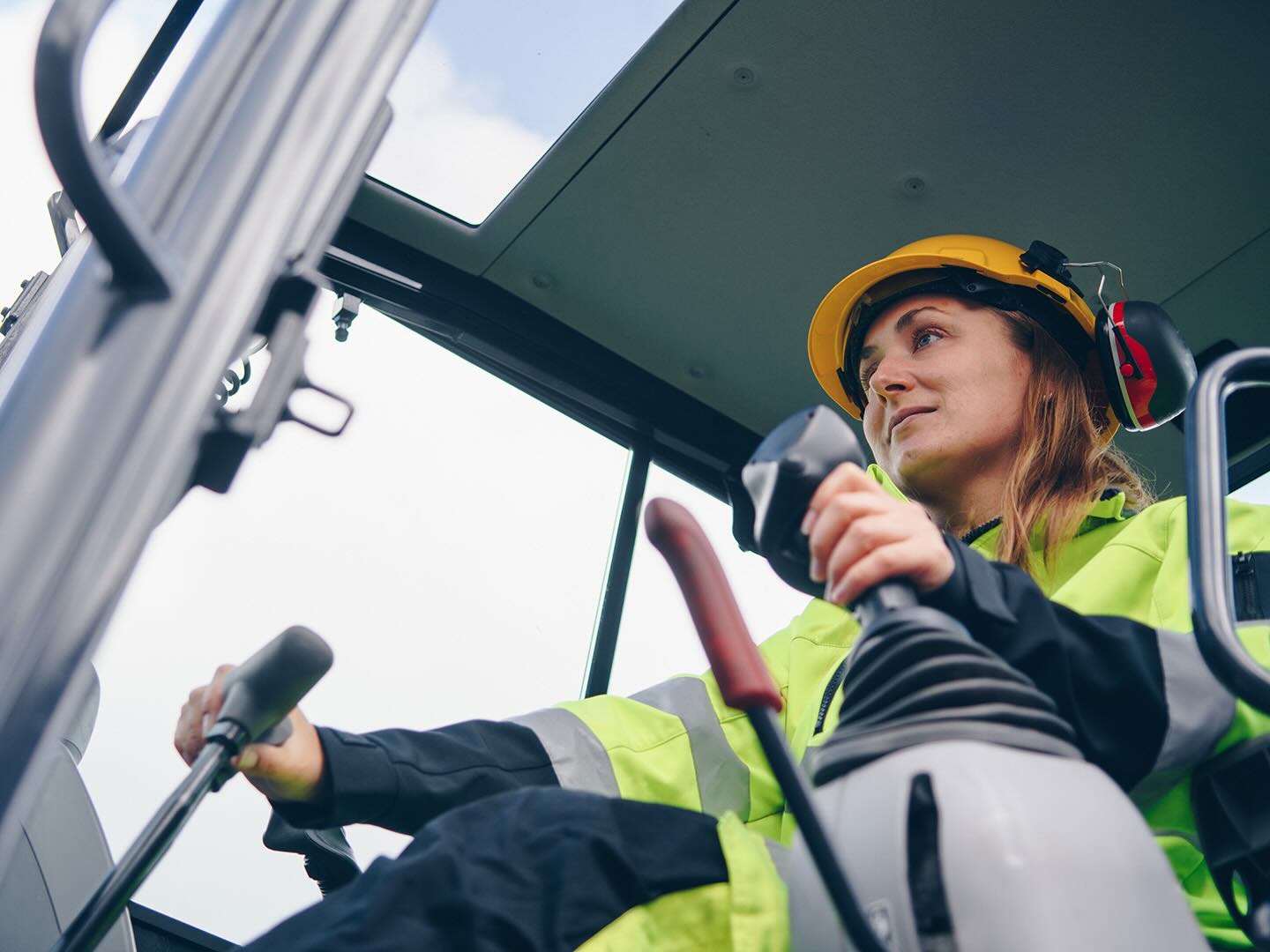

Building & Construction
How To Become A Construction Equipment Operator
Modified: December 7, 2023
Learn how to become a construction equipment operator in the building construction industry. Gain the skills and knowledge needed to operate heavy machinery and contribute to the success of construction projects.
(Many of the links in this article redirect to a specific reviewed product. Your purchase of these products through affiliate links helps to generate commission for Storables.com, at no extra cost. Learn more)
Introduction
Welcome to the world of construction equipment operators! If you’ve ever marveled at towering skyscrapers, sturdy bridges, or massive infrastructure projects, you may have wondered how these impressive structures come to life. Behind every successful construction project, there is a team of skilled professionals, including construction equipment operators.
Construction equipment operators are the backbone of any construction project. They are responsible for operating heavy machinery and equipment to move materials, excavate land, and perform various tasks required for the construction process. From bulldozers and excavators to cranes and loaders, these operators are the masters of their trade, turning construction plans into reality.
Being a construction equipment operator is no easy feat. It requires skill, precision, and a thorough understanding of the equipment being used. As an operator, you’ll navigate challenging terrain, work in all weather conditions, and coordinate with other workers to ensure the smooth execution of construction projects.
While this profession offers a unique and exciting career path, it also demands dedication and a commitment to safety. Construction equipment operators play a vital role in ensuring the safety of themselves and their team members. Therefore, meticulous attention to detail, a strong work ethic, and a safety-first mindset are essential traits for success in this field.
In this article, we’ll provide you with a comprehensive guide on how to become a construction equipment operator. You’ll learn about the job description, education and training requirements, licensing and certification processes, as well as the essential skills and qualifications needed to excel in this profession. Additionally, we’ll explore the job outlook, salary potential, and step-by-step instructions to kickstart your career as a construction equipment operator.
So, if you’re ready to embark on a journey that will contribute to building the world we live in, let’s delve into the fascinating world of construction equipment operation and discover how you can become a part of this dynamic industry.
Key Takeaways:
- Becoming a construction equipment operator involves earning a high school diploma, completing specialized training, gaining field experience, obtaining a CDL, acquiring specialty certifications, and building a professional network to secure rewarding job opportunities.
- The construction equipment operator career path offers stability, growth opportunities, and the chance to contribute to impressive infrastructure projects. Continuous learning, adaptability, and a commitment to safety are crucial for success in this dynamic field.
Read more: How To Become A Construction Estimator
Job Description
Construction equipment operators are responsible for operating heavy machinery and equipment to perform various tasks related to construction projects. Their primary role is to ensure the efficient and safe operation of equipment, such as excavators, bulldozers, loaders, cranes, and forklifts.
As a construction equipment operator, your day-to-day duties may include:
- Operating and controlling equipment to excavate, move, and load materials such as earth, rock, gravel, or debris
- Operating and maneuvering equipment to level, compact, and reshape terrain
- Working in collaboration with other construction professionals, such as surveyors and engineers, to achieve project goals
- Inspecting machinery regularly and performing routine maintenance tasks
- Reporting any mechanical issues or malfunctions to supervisors
- Following safety procedures and ensuring compliance with regulations
- Reading and interpreting construction plans, blueprints, and specifications
- Adhering to project timelines and completing tasks within designated deadlines
Construction equipment operators work in a variety of settings, including construction sites, highways, roads, bridges, and industrial projects. These professionals may also be involved in the demolition and removal of structures, as well as operating equipment in underground mining operations.
While the specific duties may vary depending on the type of equipment being operated and the nature of the construction project, the overarching responsibility of construction equipment operators is to ensure the safe and effective operation of machinery to facilitate the construction process.
In addition to operating heavy equipment, construction equipment operators may also be required to perform manual labor tasks, such as digging, shoveling, and lifting objects. Flexibility and adaptability are essential qualities for operators, as they may be asked to switch between operating machinery and assisting in other construction-related activities.
Overall, construction equipment operators play a vital role in ensuring the smooth execution of construction projects. Their skills and expertise are crucial for the timely completion of projects, and their attention to detail and commitment to safety contribute to the overall success of the construction industry.
Education and Training
While formal education beyond high school is not always required to become a construction equipment operator, having a solid educational foundation can greatly improve your chances of landing a job in this field. Many employers prefer candidates who have completed at least a high school diploma or equivalent.
High school courses that can be particularly beneficial for aspiring construction equipment operators include math, physics, mechanical drawing, and automotive technology. These subjects provide a strong foundation of knowledge in areas such as calculations, machinery, and technical skills, which are essential for operating heavy equipment.
Additionally, vocational or trade schools offer programs specifically designed for individuals interested in becoming construction equipment operators. These programs provide a more comprehensive education and hands-on training, covering topics such as equipment operation, maintenance, safety procedures, and reading blueprints.
During these training programs, you will have the opportunity to operate various types of heavy equipment and learn the proper techniques and safety protocols. This experience is invaluable as it allows you to familiarize yourself with the different controls and functions of the equipment, as well as gain practical experience in a controlled environment.
Furthermore, some community colleges and technical institutes offer associate degrees or certificate programs in construction equipment operation. These programs typically cover a broader range of topics related to construction and may include courses in construction management, project planning, and occupational safety.
While formal education can provide you with theoretical knowledge and technical skills, hands-on training and field experience are equally important. Many construction equipment operators learn on the job through apprenticeships, where they work under the guidance of more experienced operators.
Apprenticeships provide a structured training program where you can develop the necessary skills and learn the trade firsthand. You will have the opportunity to operate equipment, learn different techniques, and understand how to navigate different construction environments.
It is important to note that some states or employers may require construction equipment operators to complete specific certifications or licenses. These requirements may vary depending on the location and the type of equipment being operated. Therefore, it is crucial to research and understand the licensing and certification requirements in your area.
Overall, a combination of formal education, specialized training programs, and hands-on experience will give you a competitive edge in the construction equipment operator job market. Employers value candidates who possess both the theoretical knowledge and practical skills necessary to excel in this demanding profession.
Licensing and Certification
Obtaining the necessary licenses and certifications is an essential step in becoming a professional construction equipment operator. Licensing requirements may vary depending on the state or country in which you plan to work. It is important to research and understand the specific requirements in your jurisdiction.
In the United States, most states require construction equipment operators to obtain a commercial driver’s license (CDL) to operate certain types of equipment. The CDL is a standardized license that allows individuals to operate large vehicles and machinery on public roads.
To obtain a CDL, you will need to pass a written knowledge test and a skills test that includes a pre-trip inspection, a basic vehicle control test, and an on-road driving test. It is important to study the CDL manual and practice operating the specific equipment you plan to operate during the skills test.
In addition to the CDL, there are various industry-recognized certifications that can enhance your qualifications as a construction equipment operator. These certifications validate your skills and proficiency in operating specific types of equipment, making you more attractive to potential employers.
One widely recognized certification for construction equipment operators is the National Commission for the Certification of Crane Operators (NCCCO) certification. This certification demonstrates your knowledge and expertise in operating cranes safely and efficiently. To obtain the NCCCO certification, you will need to pass a written and practical exam that assesses your skills in operating the specific types of cranes covered by the certification.
Other certifications, such as the International Union of Operating Engineers (IUOE) certifications, are also highly regarded in the industry. These certifications cover a wide range of equipment, including bulldozers, excavators, loaders, and more. IUOE offers both written and practical examinations to assess your knowledge and skills in operating the equipment covered by each certification.
Keep in mind that these certifications may require you to meet certain prerequisites, such as a specific number of hours of experience operating the equipment or completion of a training program. It is important to research the requirements and guidelines set by the certifying body to ensure you are eligible to pursue the certifications.
Obtaining the necessary licenses and certifications not only demonstrates your commitment to professionalism and safety but also increases your employability and earning potential. These credentials set you apart from other candidates and showcase your dedication to excellence in the field of construction equipment operation.
Remember to stay updated on any changes or updates to licensing and certification requirements within your jurisdiction. Maintaining your licenses and certifications may also require periodic renewal or additional continuing education to stay current with industry regulations and best practices.
By investing the time and effort into obtaining the appropriate licenses and certifications, you will be well on your way to a successful career as a construction equipment operator.
Skills and Qualifications
To excel as a construction equipment operator, certain skills and qualifications are crucial for success in this profession. These skills encompass a combination of technical proficiency, physical abilities, and personal attributes that allow operators to operate heavy machinery safely and efficiently.
Here are some of the key skills and qualifications needed to become a successful construction equipment operator:
- Technical Knowledge: A thorough understanding of the equipment being operated is essential. Operators must be familiar with the controls, functions, and maintenance requirements of various types of heavy machinery.
- Hand-eye Coordination: Precise hand-eye coordination is necessary to operate heavy equipment safely and accurately, especially when manipulating controls and maneuvering in tight spaces.
- Physical Stamina: Construction equipment operators often work long hours in physically demanding environments. They should have the physical stamina and strength to perform tasks that may involve heavy lifting, climbing, and prolonged periods of sitting or standing.
- Attention to Detail: Operators must pay close attention to their surroundings and equipment to ensure safety. They should be able to detect potential hazards, perform regular equipment inspections, and troubleshoot any issues that arise during operation.
- Problem-solving Skills: Construction sites often present unexpected challenges. Operators should possess strong problem-solving skills to assess situations quickly, make sound decisions, and adapt to changing circumstances.
- Communication Skills: Effective communication is essential in the construction industry. Operators must be able to communicate clearly with team members, project managers, and other professionals on the job site to ensure coordinated and safe operations.
- Safety Consciousness: Construction equipment operators have a crucial role in maintaining safety on the job site. They must adhere to safety protocols, follow industry regulations, and be vigilant in identifying and minimizing potential risks.
Additionally, possessing the following qualifications and traits can enhance your prospects as a construction equipment operator:
- Valid driver’s license and clean driving record.
- Ability to read and interpret construction plans, blueprints, and diagrams.
- Basic understanding of construction processes and terminology.
- Willingness to continuously learn and adapt to new equipment and technologies.
- Ability to work well in a team environment and follow instructions.
- Excellent time management and organizational skills.
- Positive attitude, professionalism, and strong work ethic.
Keep in mind that while some skills can be learned through education and training, others develop with experience and practice. As you gain more experience operating different types of equipment and working on various construction projects, your proficiency and expertise as an operator will improve.
By cultivating a combination of technical skills, physical abilities, and personal attributes, you will be well-equipped to handle the challenges and responsibilities that come with being a construction equipment operator.
Read more: How To Become A Construction Inspector
Job Outlook and Salary
The job outlook for construction equipment operators is positive, with steady growth expected in the coming years. As infrastructure projects continue to increase and the need for maintenance and repairs grows, construction equipment operators will remain in high demand.
According to the U.S. Bureau of Labor Statistics, the employment of construction equipment operators is projected to grow by 4% from 2020 to 2030, which is on par with the average for all occupations. The demand for operators will largely be driven by the expansion of the construction industry, the need for infrastructure improvements, and the retirement of existing operators.
In terms of salary, the earnings of construction equipment operators can vary based on factors such as experience, location, and type of equipment operated. According to the Bureau of Labor Statistics, the median annual wage for construction equipment operators as of May 2020 was $49,440.
Operators who work in the construction of buildings, such as residential or commercial projects, may earn slightly lower wages compared to those working in heavy and civil engineering construction, which includes infrastructure projects like highways, bridges, and tunnels. Additionally, operators with specialized skills and certifications, such as crane operators, tend to earn higher salaries.
It’s important to note that while the job outlook is positive and salaries can be lucrative, the nature of the construction industry is influenced by economic conditions and fluctuations. Construction activity may vary from region to region, which can impact job opportunities and wages in specific areas.
Furthermore, the advancement opportunities for construction equipment operators can vary. Some may choose to gain experience and move into supervisory or management roles, while others may become self-employed and work as independent contractors. Continued professional development and acquiring new skills and certifications can enhance career prospects and increase earning potential in this field.
Overall, the job outlook for construction equipment operators is promising, offering stability and opportunities for growth. With the ongoing demand for infrastructure development and maintenance, skilled operators will continue to play a crucial role in the construction industry.
Steps to Become a Construction Equipment Operator
If you’re interested in becoming a construction equipment operator, here are the steps you can take to pursue this rewarding career:
- Earn a High School Diploma or GED: Start by completing your high school education or obtaining a General Education Development (GED) certificate. High school courses in math, physics, mechanical drawing, and automotive technology can provide a strong foundation for this profession.
- Complete a Construction Equipment Operator Training Program: Consider enrolling in a vocational or trade school program that specializes in construction equipment operation. These programs provide hands-on training and cover topics such as equipment operation, maintenance, safety procedures, and blueprint reading. Alternatively, you can pursue an associate degree or certificate program in construction equipment operation from a community college or technical institute.
- Gain Field Experience: Seek opportunities to gain practical field experience by working as an apprentice or assistant to experienced construction equipment operators. This hands-on experience will help you further develop your skills and familiarize yourself with different types of equipment and construction environments.
- Obtain a Commercial Driver’s License (CDL): Depending on the type of equipment you plan to operate, you may need to obtain a CDL. Research the specific requirements in your jurisdiction and prepare for the written and skills tests by studying the CDL manual and practicing your driving skills.
- Acquire Specialty Certifications: Consider obtaining industry-recognized certifications to enhance your qualifications. Certifications such as the National Commission for the Certification of Crane Operators (NCCCO) or the International Union of Operating Engineers (IUOE) certifications can demonstrate your expertise in operating specific types of equipment.
- Build a Professional Network: Attend industry events, join professional associations, and connect with fellow construction professionals. Building a network can help you learn about job opportunities, stay updated on industry trends, and learn from experienced operators.
- Apply for Construction Equipment Operator Positions: Polish your resume and start applying for construction equipment operator positions. Look for job openings with construction companies, contractors, or equipment rental companies. Highlight your education, training, certifications, and relevant experience on your resume and during interviews.
It’s important to note that the specific requirements and steps may vary depending on your location and the type of equipment you plan to operate. Research the regulations and guidelines in your area to ensure you meet all the necessary qualifications.
Embarking on a career as a construction equipment operator can be both challenging and rewarding. With the right education, training, and experience, you can build a successful career in the construction industry and contribute to the creation of impressive structures and infrastructure projects.
Step 1: Earn a High School Diploma or GED
The first step towards becoming a construction equipment operator is to earn a high school diploma or General Education Development (GED) certificate. This foundational education is essential for setting you up for success as you pursue a career in this field.
Completing high school provides you with a well-rounded education and equips you with basic skills and knowledge that will be valuable in your future endeavors. High school courses in math, physics, mechanical drawing, and automotive technology can be particularly beneficial for aspiring construction equipment operators.
Mathematics courses such as algebra and geometry are essential as they enhance your ability to calculate measurements, understand construction plans and blueprints, and perform basic calculations required for equipment operation.
Physics courses provide a fundamental understanding of the principles of motion, forces, and energy. This knowledge is useful in comprehending the mechanics of heavy machinery and how they interact with their environment.
Mechanical drawing courses teach you how to create and interpret technical drawings and diagrams. This skill is valuable for understanding construction plans, schematics, and equipment manuals, which are often part of the daily responsibilities of a construction equipment operator.
Automotive technology courses expose you to the fundamental principles of mechanical systems, including engines, transmissions, and hydraulics. Understanding these systems is crucial in comprehending the inner workings of construction equipment and troubleshooting any mechanical issues that may arise.
If you were unable to complete high school, obtaining a GED certificate is another viable option. The GED is an equivalent qualification to a high school diploma and indicates that you have acquired the necessary skills and knowledge at a level comparable to a high school graduate.
Obtaining a high school diploma or a GED is not only important for meeting the minimum educational requirements of many employers but also for building a strong educational foundation that will aid you throughout your career. Additionally, it demonstrates commitment, discipline, and perseverance—all qualities that are valued in the construction industry.
Once you have successfully earned your high school diploma or GED, you can proceed to the next steps of pursuing specialized training, gaining field experience, and obtaining the necessary licenses and certifications to become a construction equipment operator.
Remember, education is a lifelong journey, and even after becoming a construction equipment operator, it is beneficial to continue seeking opportunities for professional development to stay up-to-date with industry advancements and further enhance your skills.
Get hands-on experience by starting as a construction laborer or apprentice. Familiarize yourself with different types of equipment and gain practical skills.
Step 2: Complete a Construction Equipment Operator Training Program
After earning a high school diploma or GED, the next step towards becoming a construction equipment operator is to complete a specialized training program. These programs provide a comprehensive education and hands-on training specific to the field of construction equipment operation.
There are various vocational and trade schools that offer training programs specifically designed for aspiring construction equipment operators. These programs typically cover a wide range of topics relevant to the industry, including equipment operation, maintenance, safety procedures, and reading blueprints.
During the training program, you will have the opportunity to learn and operate different types of heavy machinery commonly used in construction, such as excavators, bulldozers, loaders, cranes, and forklifts. You will become familiar with the controls, functions, and safety protocols for each piece of equipment.
Hands-on training is a crucial component of these programs, providing you with real-world experience using the equipment in a controlled environment. You will learn how to operate the machinery efficiently and effectively, gaining practical skills that are essential for working in the construction industry.
In addition to equipment operation, training programs often cover other essential aspects of the profession. You will learn how to read and interpret construction plans, blueprints, and specifications, which are necessary for understanding project requirements and executing tasks accordingly.
Safety is a paramount concern in the construction industry. Training programs emphasize the importance of safety procedures and regulations, teaching you how to maintain a safe work environment for yourself and others. You will learn how to identify and mitigate potential hazards, as well as how to perform routine inspections and maintenance to ensure the proper functioning of equipment.
Completing a construction equipment operator training program gives you a competitive edge in the job market. It not only equips you with the knowledge, skills, and techniques required for the profession but also demonstrates your commitment and dedication to becoming a qualified operator.
Upon successfully completing the training program, you will receive a certificate or diploma that validates your completion of the program. This credential can be included on your resume and presented to potential employers as evidence of your specialized training in construction equipment operation.
Remember, the construction industry is ever-evolving, with new technologies and equipment constantly being introduced. Continuing education and staying updated with the latest advancements in equipment, safety procedures, and industry trends will help you stay competitive and advance in your career as a construction equipment operator.
Read more: How To Become A Journeyman Construction
Step 3: Gain Field Experience
After completing a construction equipment operator training program, the next crucial step towards becoming a successful operator is gaining field experience. Field experience provides you with hands-on exposure to real-world construction projects and further develops your skills in operating heavy machinery.
Field experience allows you to apply the knowledge and techniques you learned during your training program in a practical setting. It offers an opportunity to work alongside experienced operators, observe their methods, and learn from their expertise. By working under their guidance, you gain valuable insights into the nuances and challenges of operating different types of equipment.
There are several ways to gain field experience as a construction equipment operator:
- Apprenticeships: Consider seeking apprenticeship opportunities with construction companies or equipment rental agencies. Apprenticeships provide structured training programs where you can work under the supervision of experienced operators. This on-the-job training allows you to gain hands-on experience while gradually taking on more responsibilities as your skills develop.
- Entry-level Positions: Look for entry-level positions with construction companies or contractors. These positions often involve assisting experienced operators and performing support tasks on construction sites. While performing these tasks, you can observe and learn from experienced operators, gradually transitioning into more operator-specific responsibilities.
- Equipment Rental Companies: Consider working for equipment rental companies that specialize in renting out construction machinery. These companies often provide training and hands-on experience with various types of equipment to their employees. This allows you to gain exposure to different equipment models and refine your skills in different operating environments.
- Volunteer or Intern: Explore opportunities to volunteer or intern with construction companies or organizations. Even if these positions are unpaid or temporary, they offer valuable exposure and practical experience. It’s an opportunity to demonstrate your commitment, learn from industry professionals, and make connections in the construction field.
During your field experience, focus on honing your technical skills, improving your efficiency in operating equipment, and familiarizing yourself with different construction environments. Pay attention to safety protocols and procedures, and develop a keen eye for identifying potential hazards or issues that may arise on the job site.
Field experience also provides the opportunity to develop important soft skills, such as communication, teamwork, and problem-solving abilities. Working alongside different professionals in the construction industry allows you to collaborate effectively, handle challenges, and adapt to changing circumstances.
Remember, field experience is an ongoing process. Continue seeking opportunities to work on various construction projects, with different types of equipment, and in diverse environments. Each experience will contribute to your growth and make you a more well-rounded and capable construction equipment operator.
By gaining field experience, you will not only refine your skills and knowledge but also demonstrate to potential employers that you have practical industry experience, making you a more attractive candidate for job opportunities in the future.
Step 4: Obtain a Commercial Driver’s License
To operate certain types of construction equipment, such as dump trucks, tractor-trailers, or any other heavy machinery that is driven on public roads, you will need to obtain a Commercial Driver’s License (CDL) in many jurisdictions. Obtaining a CDL is an essential step towards becoming a fully qualified construction equipment operator.
The CDL is a specialized driver’s license that allows individuals to operate large vehicles and machinery legally. The specific requirements for obtaining a CDL may vary depending on your location and the type of equipment you plan to operate.
Here are the general steps to follow to obtain a CDL:
- Check the Requirements: Research the specific CDL requirements in your jurisdiction to understand the age restrictions, medical examination requirements, and any prerequisite qualifications.
- Study the CDL Manual: Obtain a copy of the CDL manual provided by your local Department of Motor Vehicles (DMV) or equivalent agency. The CDL manual contains valuable information on commercial driving regulations, vehicle inspection procedures, and best practices for safe driving.
- Prepare for the CDL Written Test: Review the CDL manual thoroughly to prepare for the written knowledge test. The test covers topics such as traffic laws, safe driving practices, and specific information related to commercial vehicles. Online practice tests and study guides are also available to help you prepare for the exam.
- Obtain the Necessary Documents: Gather the required documents to apply for a CDL, such as proof of identity, proof of residency, and proof of Social Security number. Check with your local DMV or licensing agency for the specific documents needed.
- Schedule and Take the Written Test: Contact your local DMV or licensing agency to schedule an appointment for the CDL written test. Arrive on the designated day and time prepared with the necessary documents and any applicable fees. Pass the test to proceed to the next step.
- Practical Skills Training: After passing the written test, you will need to complete a practical skills test, which includes a pre-trip inspection, a basic vehicle control test, and an on-road driving test. Some states or jurisdictions may require you to complete a CDL training program before taking the practical skills test.
- Pass the Practical Skills Test: Demonstrate your ability to operate the equipment safely and proficiently during the practical skills test. Successfully completing all components of the practical skills test is necessary to obtain your CDL.
- Receive Your CDL: Once you have passed both the written and practical skills tests, you will receive your CDL. This license is an important credential that validates your ability to operate commercial vehicles and certain types of construction equipment.
It’s crucial to stay updated on the CDL requirements, as regulations and processes may change over time. Consult your local DMV or licensing agency for the most accurate and up-to-date information pertaining to CDL requirements in your jurisdiction.
Obtaining a CDL not only ensures compliance with legal requirements but also broadens your career prospects as a construction equipment operator. It allows you to operate a wider range of equipment and increases your employability for jobs that require the ability to drive and transport heavy machinery.
Remember to adhere to all traffic laws and safety regulations while operating commercial vehicles or construction equipment. Maintain a clean driving record and prioritize safety in all aspects of your work as a construction equipment operator.
Step 5: Acquire Specialty Certifications
To further enhance your qualifications and stand out as a construction equipment operator, acquiring specialty certifications in specific types of equipment can significantly boost your career prospects. These certifications validate your expertise in operating specialized machinery, showcase your dedication to ongoing professional development, and increase your credibility in the industry.
Here are some widely recognized certifications that you can consider acquiring:
- National Commission for the Certification of Crane Operators (NCCCO): The NCCCO offers certifications for various types of cranes, including mobile cranes, tower cranes, and overhead cranes. These certifications demonstrate your knowledge and proficiency in safely operating specific types of cranes, as well as your understanding of the associated rigging and signaling practices.
- International Union of Operating Engineers (IUOE) Certifications: The IUOE offers certifications that cover a wide range of equipment commonly used in the construction industry. These certifications can include bulldozers, excavators, loaders, backhoes, and more. Each certification involves a written exam and a practical demonstration of operating the specific equipment.
- Specialized Equipment Manufacturer Certifications: Some equipment manufacturers provide certifications specific to their machinery. These certifications demonstrate your expertise in operating their equipment and can be advantageous when seeking employment with companies that utilize those specific brands.
- OSHA Forklift Operator Certification: Operating forklifts is a common task for many construction equipment operators. The Occupational Safety and Health Administration (OSHA) offers certification programs for forklift operators. This certification covers the safe operation and maintenance of forklifts, emphasizing the importance of workplace safety.
- Other Trade Association Certifications: Various trade associations and organizations offer certifications related to construction equipment operation. These certifications may focus on specific skills, such as trenching and excavation safety, aerial lift operation, or equipment-specific knowledge.
Before pursuing any certifications, research the requirements and prerequisites set by the certifying organization. Some certifications may require a minimum number of hours of experience operating the equipment, completion of training programs, or passing written and practical exams.
Acquiring specialty certifications not only provides you with a competitive edge in the job market but also demonstrates your commitment to professional growth and safety. Employers often prioritize certified operators due to their proven expertise and dedication to meeting industry standards.
Additionally, maintaining and renewing your certifications regularly is important. Many certifications require periodic renewal through continuing education courses or retesting to ensure that operators remain up-to-date with industry standards and best practices.
Remember, each certification you acquire further strengthens your skillset and increases your value as a construction equipment operator. Continuous learning and professional development are key to staying current in the industry and advancing in your career.
Step 6: Build a Professional Network
Building a strong professional network is a critical step towards establishing a successful career as a construction equipment operator. A robust network can help you stay informed about job opportunities, gain valuable insights and advice from industry professionals, and create lasting connections that can benefit you throughout your career.
Here are some strategies to help you build a professional network in the construction industry:
- Attend Industry Events: Look for construction industry events, trade shows, conferences, and seminars in your area. These events provide an excellent opportunity to meet fellow professionals, connect with potential employers or contractors, and gain insights into the latest trends and technologies in the field.
- Join Professional Associations: Consider joining professional associations or organizations related to construction equipment operation. These associations often host networking events, conferences, and workshops that allow you to connect with industry professionals and stay updated on industry developments. Examples include the National Association of Heavy Equipment Training Schools (NAHETS) and the International Union of Operating Engineers (IUOE).
- Utilize Online Platforms: Take advantage of online platforms like LinkedIn, which is a powerful tool for building professional connections. Create a detailed profile that showcases your skills, qualifications, and experiences. Connect with professionals in the construction industry and join relevant groups and forums to engage in discussions and expand your network.
- Volunteer or Participate in Community Projects: Engage in community projects or volunteer opportunities that involve construction work. This allows you to collaborate with other industry professionals, build relationships, and gain exposure to different aspects of construction.
- Seek Mentors and Experienced Operators: Identify individuals who are experienced in the field and seek their guidance and mentorship. A mentor can provide valuable insights, advice, and help you navigate challenges as you progress in your career. They may also offer introductions to their professional network, expanding your opportunities for connections.
- Stay in Touch: Once you establish connections within your network, make an effort to stay in touch and maintain those relationships. Networking is not a one-time event but an ongoing process. Regularly communicate with your connections, participate in industry discussions, and share relevant insights or articles to keep yourself visible and engaged.
Remember, networking is about building mutually beneficial relationships, so be open to helping others and offering support whenever possible. Actively listening, showing genuine interest in others’ experiences, and being professional and respectful in your interactions will contribute to the growth of your network.
A strong professional network can provide various opportunities, including job referrals, recommendations, and access to new projects or ventures. It can also be a source of inspiration, mentorship, and professional growth throughout your career.
By dedicating time and effort to building your professional network, you can expand your horizons, stay connected with industry trends, and unlock a wealth of possibilities in the construction equipment operation field.
Step 7: Apply for Construction Equipment Operator Positions
After gaining the necessary education, training, field experience, licenses, certifications, and building a professional network, it’s time to take the final step and apply for construction equipment operator positions. This step involves showcasing your qualifications, skills, and experience to potential employers and securing a job in the industry.
Here are some tips to help you during the application process:
- Polish Your Resume: Tailor your resume to highlight your relevant skills and experiences as a construction equipment operator. Include your education, training, certifications, and any relevant field experience. Emphasize your proficiency in operating specific types of equipment and highlight any achievements or accolades you have received.
- Write a Targeted Cover Letter: Craft a well-written cover letter that addresses the specific requirements of the job you are applying for. Describe your passion for the industry, your commitment to safety, and your ability to operate equipment efficiently. Showcase how your skills and experiences align with the needs of the employer.
- Utilize Your Professional Network: Reach out to the connections you’ve built in the industry and inform them that you are actively seeking employment as a construction equipment operator. They may be aware of job opportunities or be able to provide valuable recommendations or referrals.
- Search and Apply for Job Openings: Explore job boards, company websites, and industry-specific platforms to identify job openings for construction equipment operators. Submit your tailored resume and cover letter for each position you apply to. Follow the application instructions provided by the employer, ensuring that you meet any specific requirements or submission deadlines.
- Prepare for Interviews: If your application is successful, you may be invited for an interview. Research the company and the specific project(s) for which the operator position is available. Prepare for common interview questions and be ready to discuss your experience, skills, and approach to safety and teamwork. Emphasize your ability to problem-solve, work under pressure, and adapt to changing conditions.
- Show Professionalism and Enthusiasm: During the application process and interviews, demonstrate professionalism, enthusiasm, and a positive attitude. Be punctual, present yourself well, and show genuine interest in the opportunity. Highlight your commitment to safety and your dedication to delivering high-quality work as a construction equipment operator.
- Follow Up: After interviews, remember to send a thank you email or note to express your gratitude for the opportunity to interview and reiterate your interest in the position. This helps to leave a positive impression and reinforces your enthusiasm for joining the team.
Keep in mind that the job market can be competitive, so be patient and persistent in your search for employment. It may take time to find the right opportunity that aligns with your skills, interests, and career aspirations.
In the meantime, stay proactive in refining your skills, maintaining certifications, and expanding your knowledge of the industry. Consider temporary or contract positions, apprenticeships, or freelancing opportunities to gain additional experience and make new professional connections.
Remember, the construction industry values dedicated and skilled professionals who prioritize safety, efficiency, and quality work. By showcasing your qualifications, skills, and passion for the field, you increase your chances of securing a rewarding position as a construction equipment operator.
Best of luck on your journey towards a successful career in construction equipment operation!
Conclusion
Congratulations on completing this comprehensive guide on how to become a construction equipment operator! You now have a solid understanding of the steps involved in pursuing a career in this dynamic and rewarding field.
As a construction equipment operator, you play a vital role in the construction industry, contributing to the creation of impressive structures and infrastructure projects. Your skills and expertise in operating heavy machinery are in high demand, and the job outlook for construction equipment operators remains positive, with steady growth projected in the coming years.
Throughout this journey, you learned the importance of earning a high school diploma or GED, completing a training program to gain the necessary knowledge and skills, and acquiring a Commercial Driver’s License (CDL) to operate specific equipment on public roads. You also explored the value of obtaining specialty certifications to enhance your qualifications and demonstrate your proficiency in operating specific types of equipment.
Additionally, we discussed the significance of gaining field experience to refine your skills, develop your problem-solving abilities, and familiarize yourself with different construction environments. Building a professional network, attending industry events, participating in associations, and seeking mentorship will provide you with invaluable connections and ongoing support throughout your career.
Now armed with this knowledge, it’s time to apply for construction equipment operator positions. Polish your resume, write targeted cover letters, utilize your network, and prepare for interviews to showcase your qualifications, skills, and enthusiasm for the industry.
Remember, a successful career as a construction equipment operator requires continuous learning, adaptability, and a strong commitment to safety. Stay updated on industry advancements, maintain your certifications, and seek out opportunities for professional development to stay competitive and advance in your field.
Lastly, embrace the challenges and rewards that come with being a construction equipment operator. Your contributions to the construction industry will leave a lasting impact, shaping the infrastructure and communities we live in.
Best of luck as you embark on this exciting and fulfilling career path as a construction equipment operator!
Frequently Asked Questions about How To Become A Construction Equipment Operator
Was this page helpful?
At Storables.com, we guarantee accurate and reliable information. Our content, validated by Expert Board Contributors, is crafted following stringent Editorial Policies. We're committed to providing you with well-researched, expert-backed insights for all your informational needs.

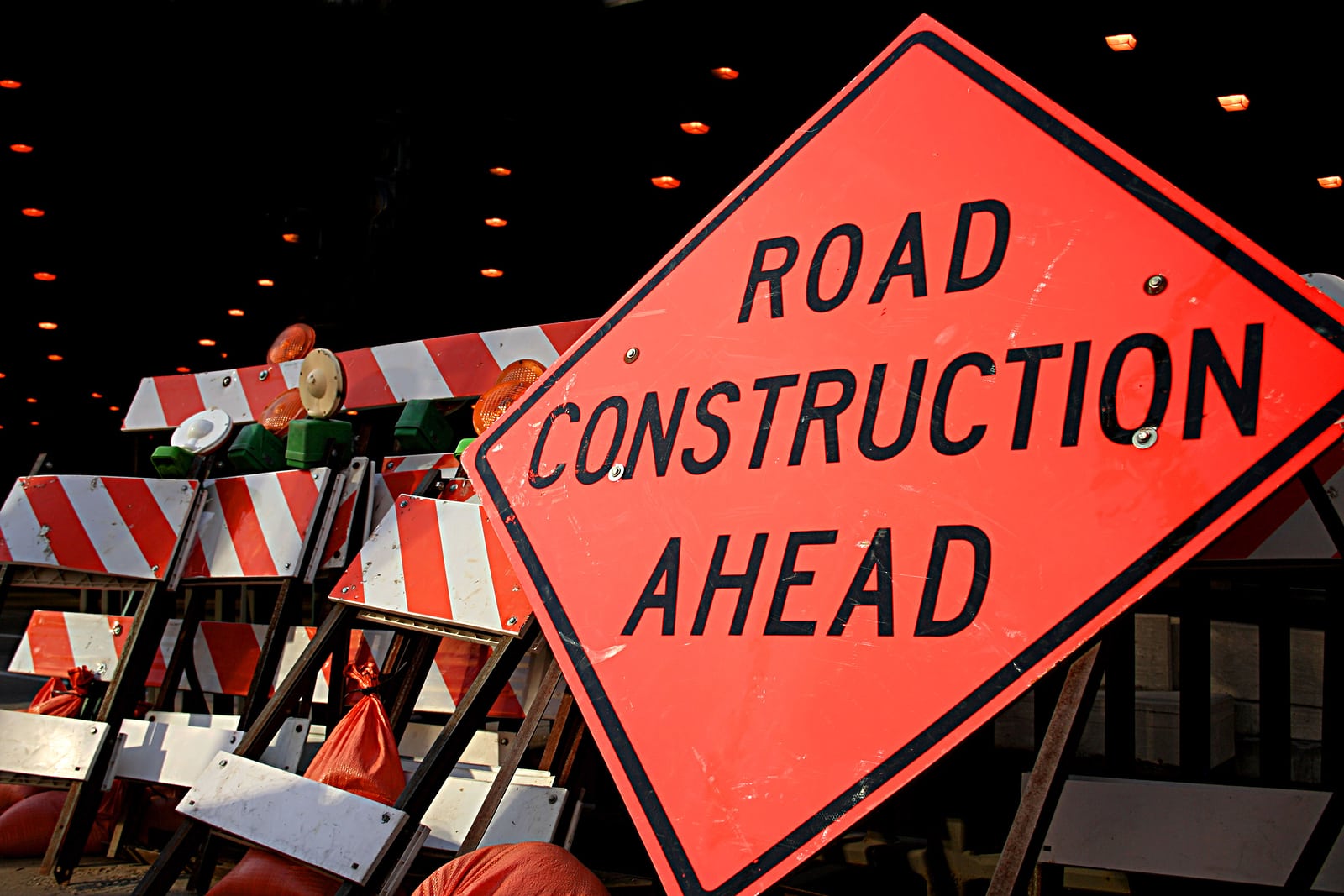

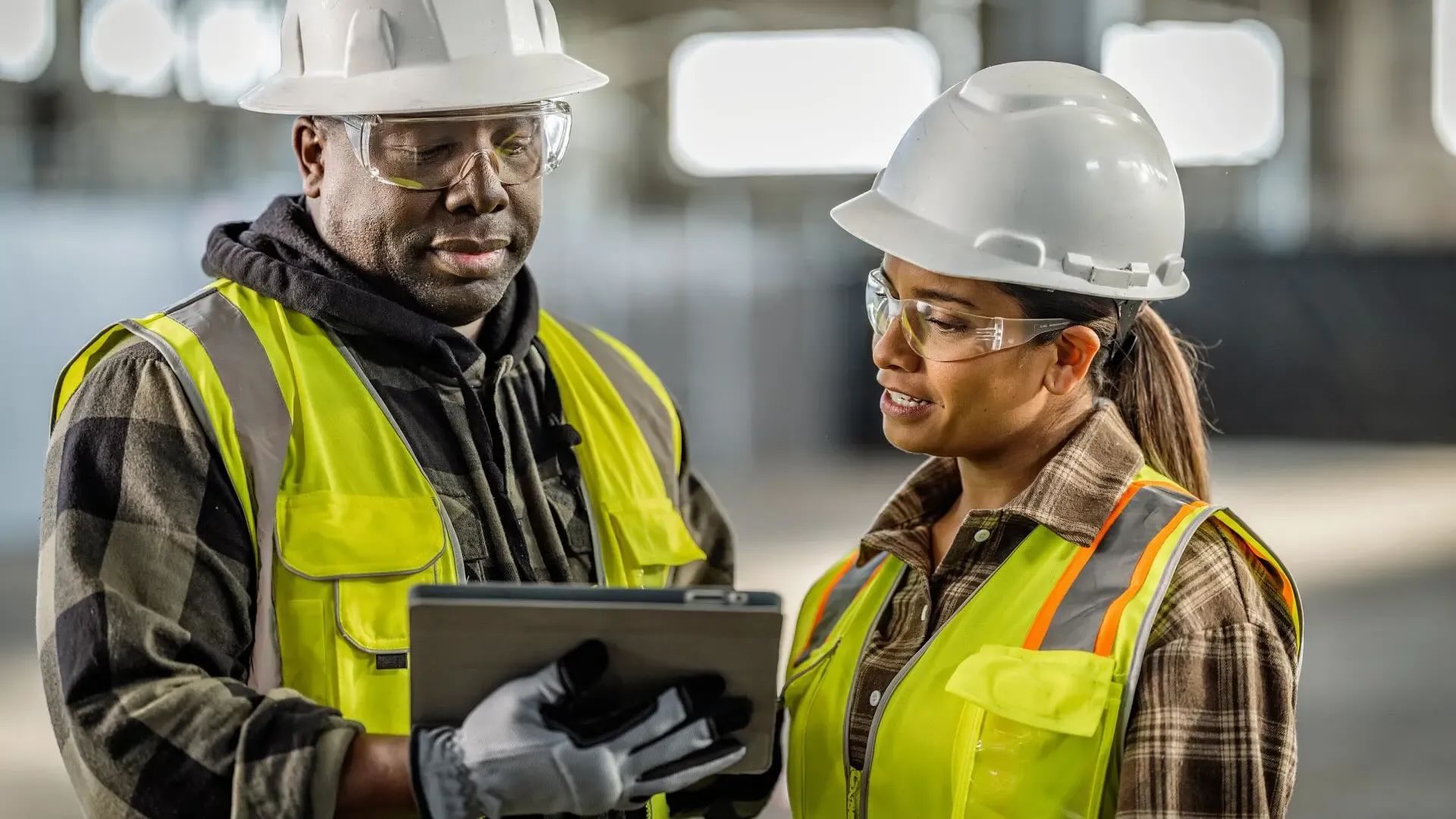

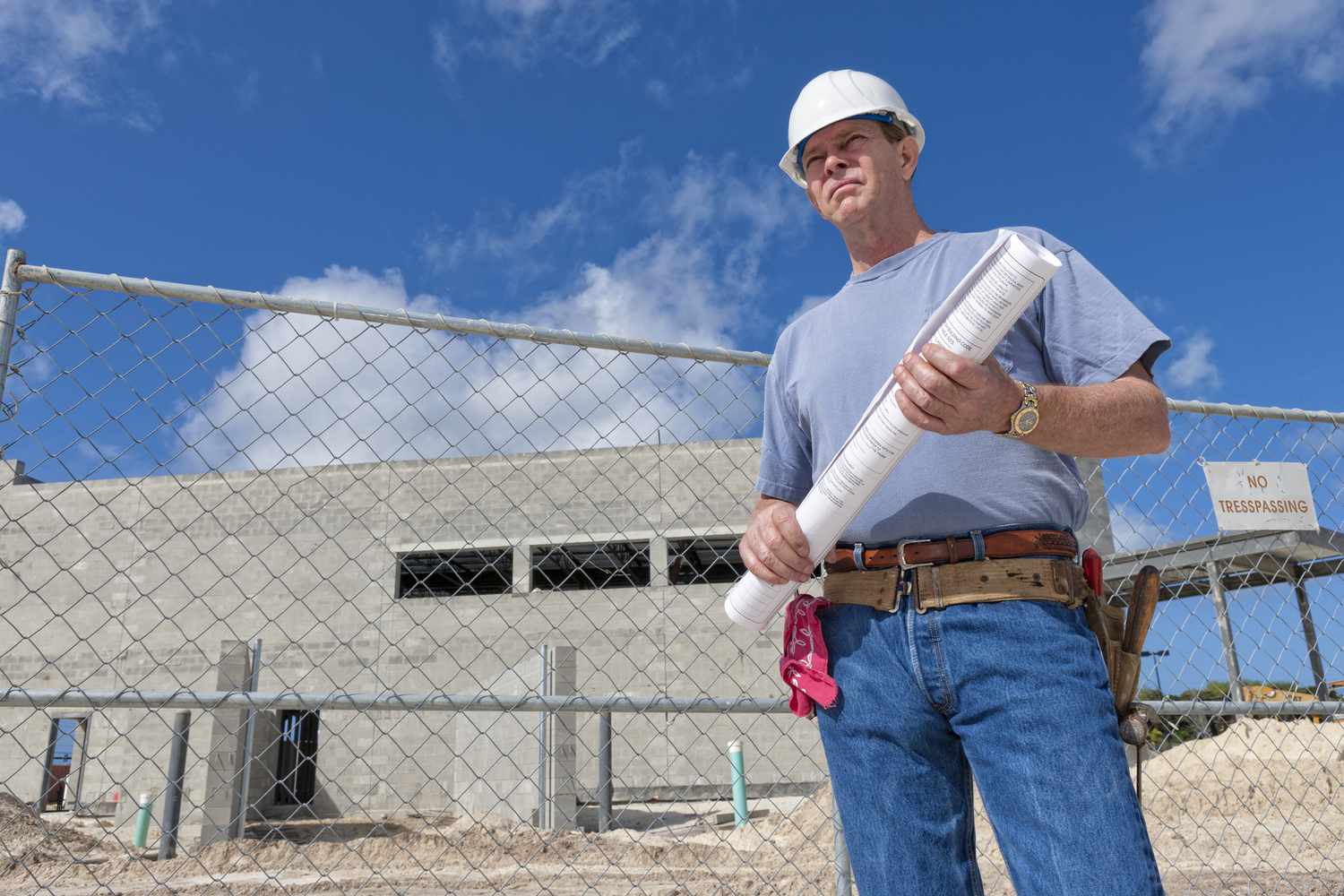
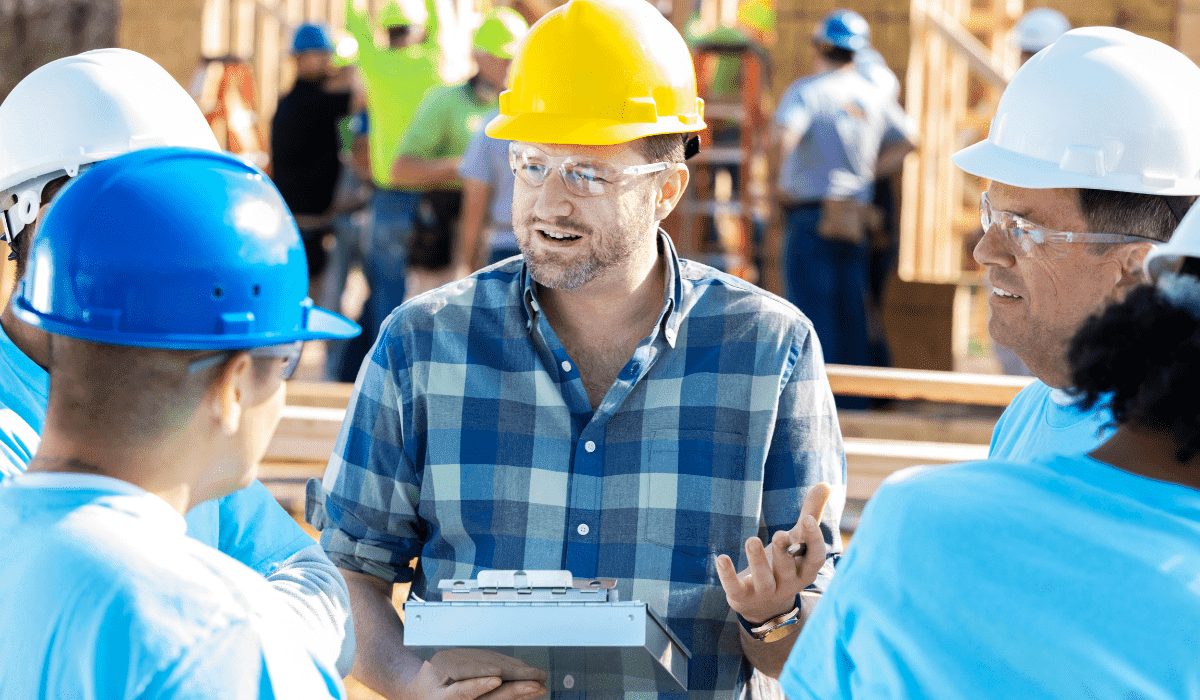

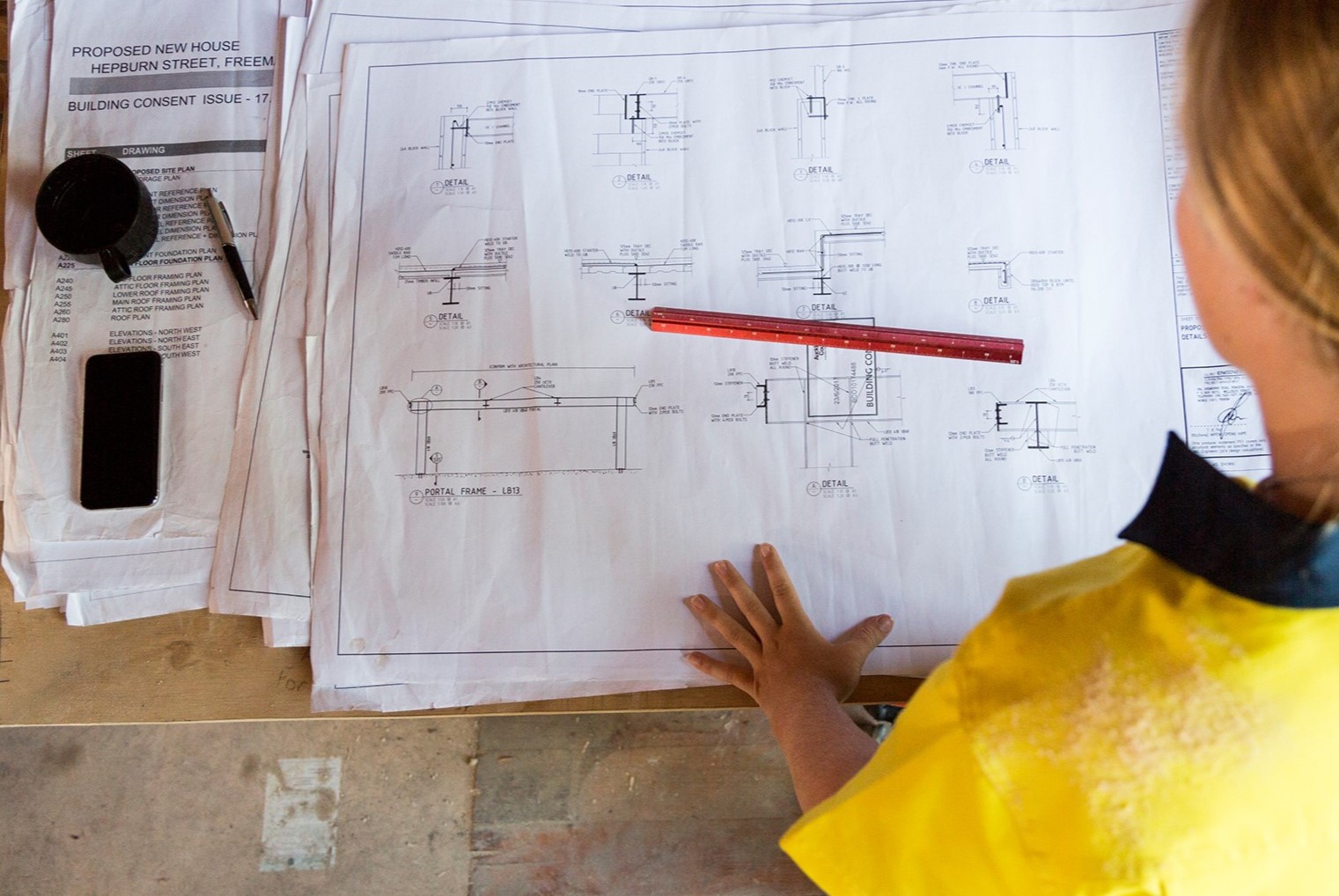




0 thoughts on “How To Become A Construction Equipment Operator”